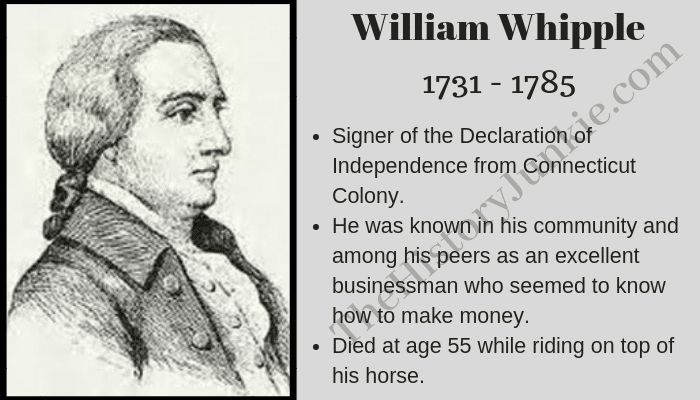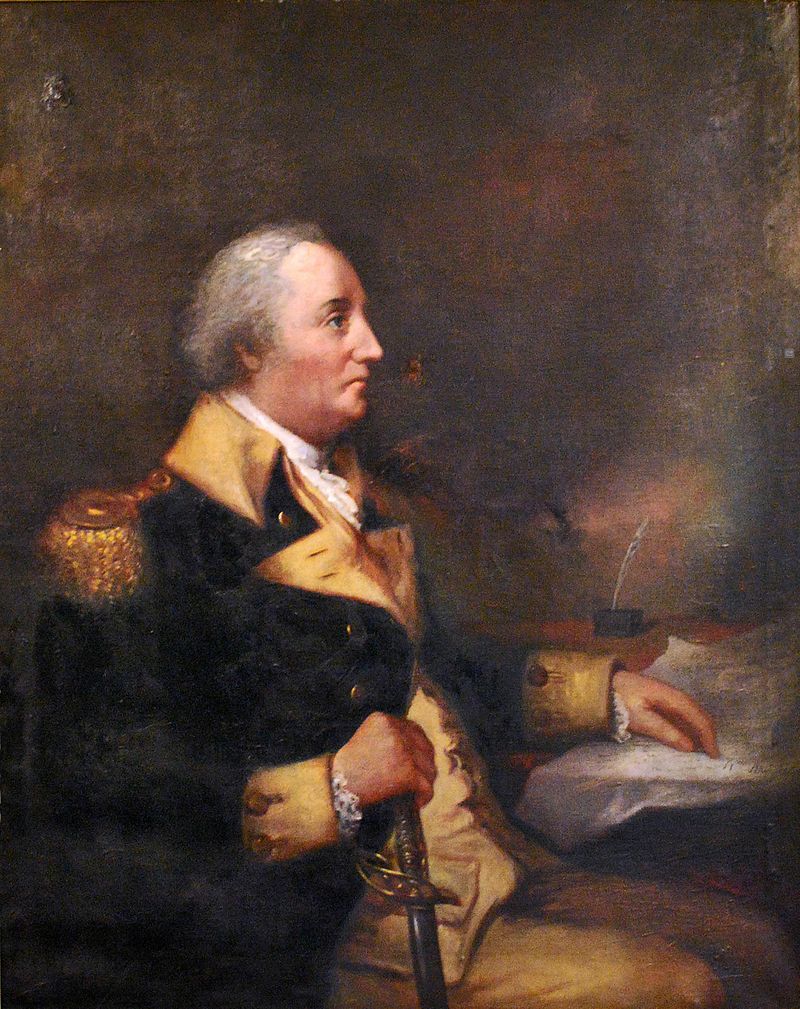William Whipple was born in Kittery, Maine, on January 14, 1730. He was the firstborn son to his father, William Sr, who worked as a maltster/brewer but had in his past worked as a sailor.

William Whipple's mother was a daughter to Robert Cutts, who was a wealthy shipbuilder who had become an influential man in Kittery. When he died, he left a large fortune to William's mother.
Jump to:
Unlike many of the Declaration of Independence Signers, Whipple attended public school. By the age of 21, he had grown fond of the sea, which resulted in him commanding his own ship. He worked as a merchant who sailed to the West Indies and Africa and participated in the slave trade.
He would later free those slaves that he owned during the American Revolutionary War. These business ventures made Whipple a wealthy man.
Whipple left this merchant vessel in 1759 when he arrived in Portsmouth, New Hampshire.
He and his brother would begin a partnership, which he would settle into and continue his success.
Whipple was always known for his natural ability in business. Charles Goodrich writes in his Lives Of The Signers Of The Declaration Of Independence:
The mind of Mr. Whipple was naturally strong, and his power of discrimination was quick. In his manners, he was easy and unassuming; in his habits, correct. And in his friendships, constant. Although his early education was limited, his subsequent intercourse with the world, united with his natural good sense, enabled him to fill with ability the various offices to which he was appointed.
William would settle down and marry his first cousin, Katherine Moffat, around 1770. They would only have one child who would die in infancy.
American Revolution

He, like many of the Signers of the Declaration of Independence, would be supportive of the American Revolutionary War from the beginning. He was sent as a delegate of the New Hampshire Colony to the Second Continental Congress.
He would serve in the Congress until 1779. In 1777, he was made Brigadier General of the New Hampshire militia. Here, he would serve valiantly in the Battles of Stillwater and Saratoga.
In 1778, he raised another brigade of New Hampshire Militia to fight in the Battle of Rhode Island. William Whipple's slave, Prince Whipple, served with him faithfully throughout the war.
After the war, he became an Associate Judge for the Supreme Court of New Hampshire.
He would die as a judge when he fainted from atop his horse while riding his circuit.
